New Sleaford based clinic can ease pain and waiting lists
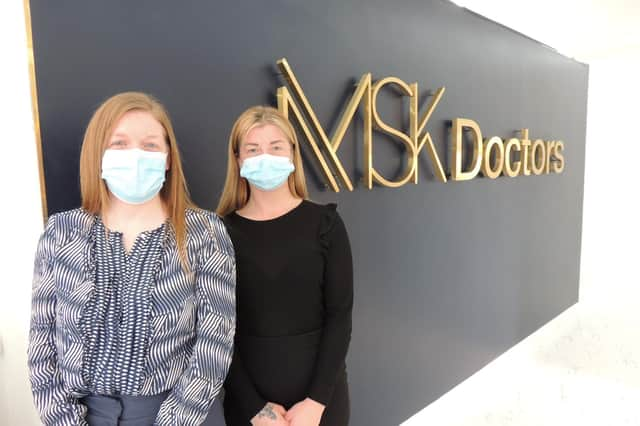

A group of medical professionals, who are also orthopaedic consultants on the NHS front line, have launched MSK Doctors, a private practice offering interventions and treatments for musculoskeletal problems for patients who may feel unable to wait.
It is based in the former clubhouse premises that was Birdies golf driving range on London Road, between Sleaford and Silk Willoughby and has a permanent staff team for ongoing treatment as well as the specialists who visit when required.
Advertisement
Hide AdAdvertisement
Hide AdThe partnership opened its first branch, The Keep Clinic, in the old barracks in Grantham just over a year ago and the Sleaford facility has just launched after some delays due to the coronavirus pandemic.
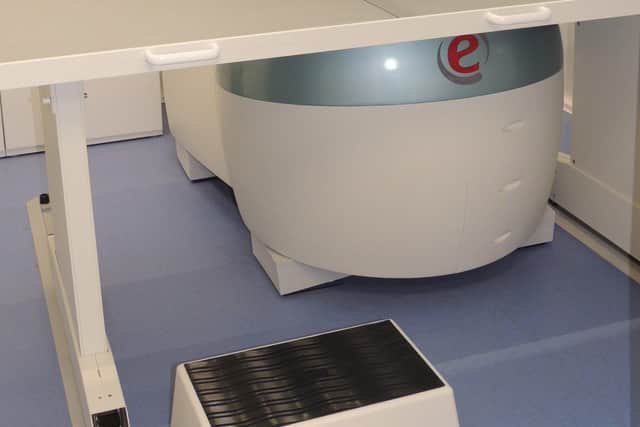

Professor Paul Lee, an orthopaedic surgeon specialising in knee and hips, is medical director and also sees patients down at his Harley Street office, where he also has use of a high standard hospital operating theatre for day surgery if required, but he says that MSK Doctors are at present focussed on preventing need for surgery, as well as pre-op and postoperative treatment and rehabilitation.
Alongside him he has Alun Yewlett, a shoulder and elbow specialist, as well as Damian Bochniak their resident sports scientist and physiologist, they have a physiotherapist and a nurse, plus their radiologist who operates their state-of-the-art MRI scanner, a major investment from Italy which is open sided – perfect for claustrophobic patients who can lie down or sit up, while being able to focus on purely the part of the body in question while the rest of the body is outside the scanning field. It is also a lot quieter than traditional scanners.
Prof Lee said they are really excited to have opened in Sleaford, centrally located, making it a lot easier for patients to travel and access experts in musculoskeletal problems. He said he wants to bring Harley Street standards of medicine to Lincolnshire and the latest equipment and technology, rather than it being exclusive to top sports people, helping to relieve pain and monitor patients closely to make treatment more effective.
Advertisement
Hide AdAdvertisement
Hide AdHe said: “We use artificial intelligence to monitor how people’s knees work. Our Force Deck measures how balanced people’s stance is and we have a robot from the Universities of Malaysia and Melbourne to treat ankle injuries.
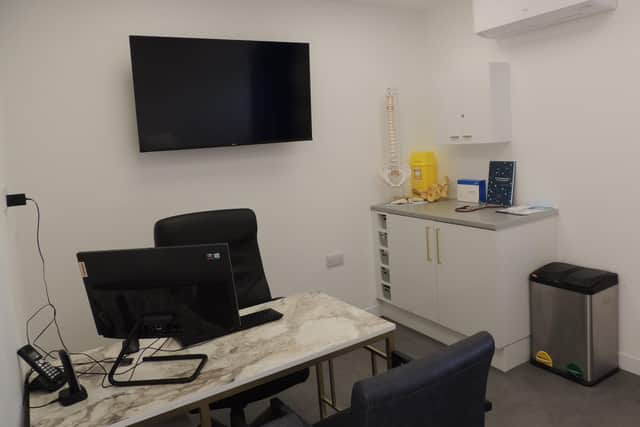

“The MRI scanner is the only open scanner in the county and a big investment, specially designed for musculoskeletal problems. We partnered up with Lincoln University for funding to so some experimental work for musculoskeletal treatments which is really exciting.”
Prof Lee said that rather than being only static, the scanner can capture images as the joint bends and straightens to observe if bones catch on each other, something which he says is revolutionary for his treatments.
Prof Lee added: “The NHS waiting lists are another good reason for opening as elective surgery has been cancelled for periods during the pandemic.
Advertisement
Hide AdAdvertisement
Hide Ad“Our philosophy is to try and delay and avoid surgery as long as possible. We are focussing on non-surgical options like injections and keyhole surgery. Later we want to build a theatre at the side of the Sleaford site that can do joint replacement.”
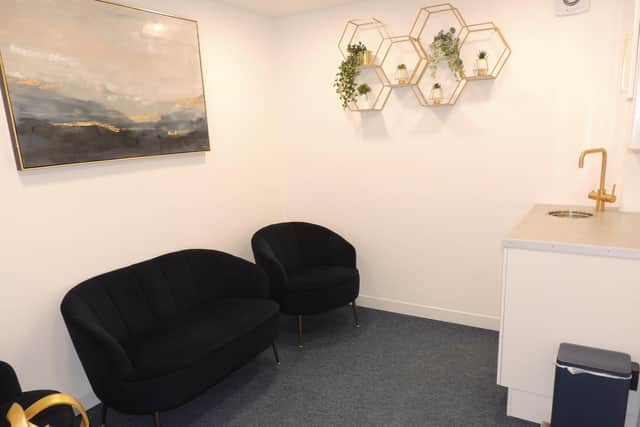

Currently all pre-op and post-op work would be done locally meaning patients would only have to travel for the actual operation day.
Running the day to day operations at the clinic is practice manager Bethan Lee.
She added: “We have had quite a lot of patients who had been waiting several months on the NHS and waits for scans were lengthy.
Advertisement
Hide AdAdvertisement
Hide Ad“People are more aware of their own health and now this gives them the option to explore another avenue. We have self-paying patients, some come to us through insurance policies and there is the Bromhead charity which is specific to Lincolnshire providing health care to patients that cannot necessarily afford it.”
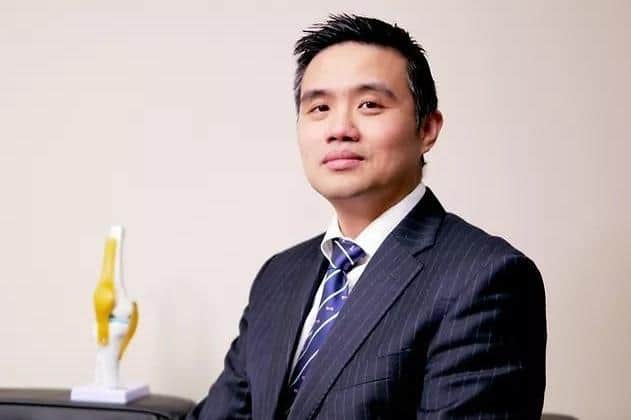

She has had patients come for a consultation, get assessed by the sports scientists, have a MRI scan and get the results back ready to discuss with a specialist within a couple of days. They can meet face-to-face or have a virtual appointment where people can see their scans and talk through the reports.
Bethan said they can offer proven therapies not available on the NHS due to budgets. It is about convenience and peace of mind, she said.
Prof Lee said they already have hopes to expand into Lincoln and Boston and a college in Cardiff is interested in their work.
Advertisement
Hide AdAdvertisement
Hide AdHe said the NHS is great for major trauma and diseases and that is where all the investment is, but it is less focussed on enhancing and improving health, such as enabling people to walk, as there are finite resources, saying: “This is where we can help, similar to the dentistry model. If you want that treatment as soon as possible, we can help.”
Latest technology and equipment pays dividends
Sports scientist and physiologist Damian Bochniak, along with clinic assistant Kia Mclarnon, have both joined the clinic through the government’s Kick Start which was introduced in March last year to address the impact the pandemic was having on job opportunities for young people.
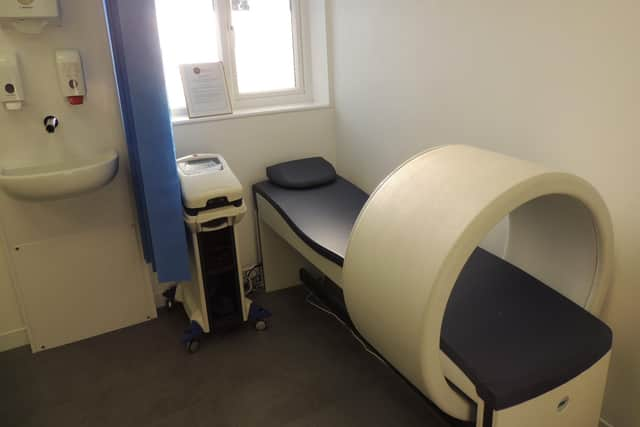

Damian is based in the sports science and biomechanics lab, surrounded by equipment to deliver evidence-based treatment, assisting in patients’ recovery while monitoring them. Many of the devices are not widely available.
He demonstrated how the portable Force Plates monitor the body’s symmetry. “For example, hip injuries will see patients favouring one side over the other,” he explained. “Working to balance the body will reduce pain and risk of future injuries.”
Advertisement
Hide AdAdvertisement
Hide AdThe data-generated can help motivate the patient when they see the progress being made.
He also has an exoskeleton machine to monitor and help people who suffer pain when they walk, looking at their footwear, joints and building muscle groups.
Another tool he uses is blood restriction training, which allows patients to gain greater benefits and build muscle from low-intensity exercise – popular with elite athletes. Damian said by squeezing the muscles it replicates a more physical gym workout.
Another cooling device reduces the need for painkillers, reducing swelling by 50 to 80 per cent and allows the patient to move a joint sooner after surgery to begin physiotherapy.
Bethan added: “We also offer a wide range of bracing devices for knees and joints. We use our test results to apply them correctly.”